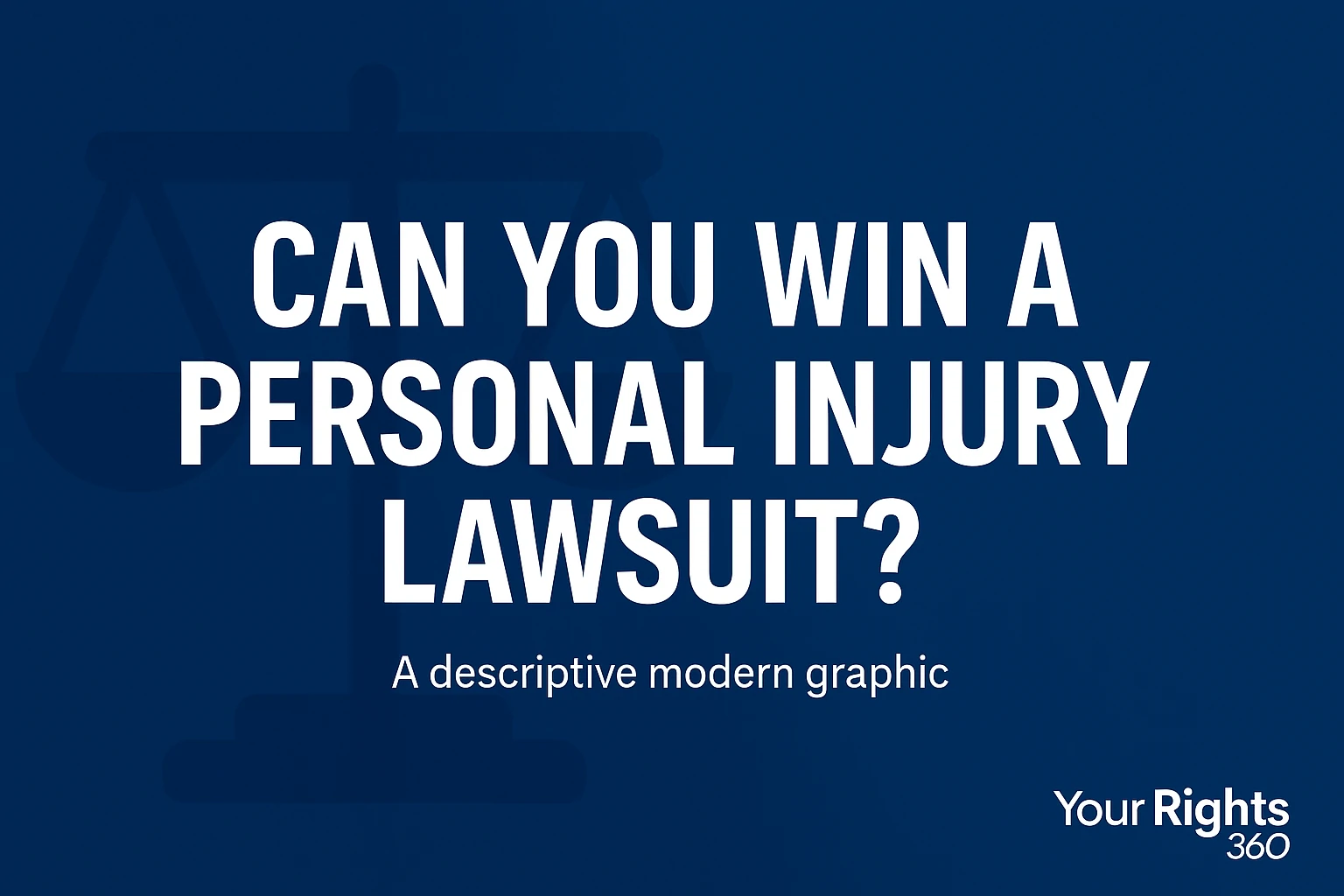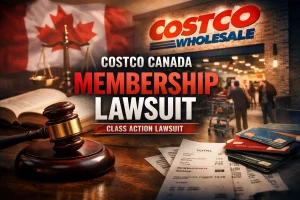When someone suffers an injury because of another person’s actions, they may feel confused about what comes next. Medical bills pile up. Missed work adds more stress. The injury affects daily life. At that point, many people start to think about legal options. They ask themselves a serious question, what are my chances of winning a personal injury lawsuit?
This question can make or break a decision. Lawsuits take time. They also involve risk. Some people think they have a strong case but still feel unsure. Others feel hopeless even when their rights are clear. The fear of losing may stop them from trying at all.
The truth is, many factors shape the outcome of a personal injury case. It is not just about what happened. It also depends on what you do next, how strong your proof is, and how good your legal help is. Courts need clear facts. Juries want to see fairness. A good lawyer knows how to put those pieces together.
This article breaks down the process in a simple way. It helps you understand how courts look at personal injury claims. It also shows how your actions, your documents, and your team can improve or weaken your chances. If you want a fair result, you must understand the game, and play it smart.
What You Must Prove in a Personal Injury Case
Every personal injury case needs four key parts. If even one is missing, the case may fail. First, you must show that the other person had a legal duty. That means they were supposed to act with care. For example, a store must keep its floors safe. A driver must stop at red lights. These are legal duties.
Next, you must prove that this duty was broken. Maybe someone left a wet floor with no warning sign. Maybe a driver looked at their phone instead of the road. If they failed to act carefully, that breach of duty becomes the center of your claim.
Third, you must prove that the breach caused your injury. It cannot be a guess. There must be a clear link. If you fell because of a wet floor, that must be clear in your report or witness statement. If you had neck pain after a crash, the doctor’s record must show it.
Last, you must show that the injury caused real harm. This includes medical bills, lost income, pain, or even emotional stress. A court will not award money just because something happened. You must show the damage clearly, with proof.
Without these four parts – duty, breach, cause, and harm – you will likely lose. That is why building a case takes careful planning from the start.
Why Evidence Can Make or Break Your Case
Judges and juries do not work on guesses or emotions. They look at proof. Strong evidence can move a case forward. Weak or missing proof can kill it, even when the truth is on your side.
Photos and videos are powerful. A picture of a broken sidewalk, a crash scene, or a deep cut tells a story fast. People understand what they see. A photo does not forget. It also cannot change its words later.
Medical records are just as strong. They show the date, time, and details of your injury. They also show the treatment steps, the cost, and the long-term effect. Without them, your pain becomes harder to explain.
Police reports help, too. They show who was there, what was said, and what actions took place. If a crash happened, police may have recorded speed, road signs, and other facts. These reports support your version of the story.
Witness statements also help the court see the truth. People who saw the injury or heard the event can offer support. Their words help prove that the event happened as you said it did.
You need this kind of proof early. Do not wait. Evidence can fade. People forget. Records get lost. Once that happens, even a strong case can fall apart.
How Your Behavior Affects Your Case
What you do after the injury plays a big role. Your actions can help or hurt your chance to win. Some people make mistakes without knowing how much it matters.
If you skip doctor visits, the court may think you are not really hurt. If you miss treatments or ignore advice, it may look like the injury was minor. Every medical step should be clear, honest, and on record. Keep your appointments and follow your treatment plan.
Insurance companies watch what you do. They may check your social media. If you post happy photos or talk about going out, it could weaken your claim. You may still feel pain inside, but the outside picture may not match. That matters in court.
Be careful with insurance agents. They may call you early and ask you to talk. They often seem friendly, but they take notes. If you say the wrong thing, they may use it against you later. Never speak to them without legal advice. A lawyer helps protect your words.
Also, never wait too long to take legal action. Each state sets a time limit. This is called a statute of limitations. Once that time ends, you cannot file a lawsuit, even if the facts are strong. Know the deadline in your state and act before it passes.
What a Good Lawyer Brings to the Table
A lawyer is not just someone who files papers. In personal injury law, a lawyer becomes your guide, your guard, and your voice. They know the rules. They understand how courts work. They have seen cases like yours and know how to handle them.
The lawyer looks at your injury and gathers the right facts. They talk to doctors, speak with witnesses, and deal with the insurance companies. They know what proof the court needs and what words can protect your rights.
A lawyer also knows how to place value on your case. They can explain what your claim is worth. Without this help, you may accept a small offer just to move on. That choice may cost you later. A lawyer pushes for what is fair, not just fast.
Most personal injury lawyers work on contingency. You do not pay unless they win your case. This setup gives them a reason to work hard. They want results, just like you. They know how to move cases forward and how to keep your case strong.
Settlement or Trial: Where Cases Usually End
Most personal injury cases do not go to trial. Instead, they end in a settlement. That means both sides agree on a payment before court. This deal avoids risk and saves time.
Settlements happen in quiet meetings. Lawyers talk. Offers go back and forth. If both sides agree, the case ends there. You get paid. You move on. This is common because trials cost more and take longer.
Still, trials can bring higher payouts. If the other side offers too little, a lawyer may say, “Let’s go to court.” At trial, the judge or jury listens to both sides and decides the result. The process takes longer, but it may lead to a better outcome.
Each case is different. Some need fast relief. Others need full justice, even if it takes more time. A good lawyer helps you decide what makes sense. They will guide you through the risks and rewards of both paths.
Read Also: Family Law Public Defender
What Raises or Lowers Your Odds
Several things shape your chance to win. The type of injury plays a role. Minor cuts or soft tissue issues may not bring much. But broken bones, head injuries, or lifelong pain often lead to higher payouts.
The proof of fault also matters. If blame is clear, like a driver who ran a red light, your case stands stronger. But if blame is shared or unclear, the case may lose power. Courts want to see fault backed up by facts.
Your medical records must show real harm. A vague note like “mild pain” does not help much. A clear record that lists injury, cost, and recovery steps gives your case strength.
The lawyer you hire also affects the result. A smart, focused attorney with experience knows how to build trust and tell your story well. Weak lawyers may miss key facts or fail to respond in time. That could hurt your claim.
Lastly, your local court rules and jury views matter. Some states favor injury victims more. Others lean toward defense. Your lawyer should know the legal culture in your area.
Can You Still Lose a Strong Case?
Some personal injury cases look solid but still lose. That is how the legal system works. A strong case can fall apart when things go wrong. A key witness may not appear. A judge may block certain records. The jury may believe the other side. These events happen, even when the truth seems clear.
Legal mistakes can also cost you the case. If a lawyer files the wrong form or misses a deadline, the court may throw out your claim. A witness may change their story in court. One small shift in facts can create doubt. That doubt can lead to a loss.
Insurance companies often add pressure. They may say you are at fault. They may deny your injury or delay your payment. These tactics work when people are not ready. That is why it is so important to plan every step from the start.
Follow the rules. Keep your facts straight. Work with a lawyer you trust. A smart legal plan gives you the best chance to succeed. Do not let small errors ruin a case that deserves justice.
Read Also: Minyard Morris Family Law LLP
Conclusion
A personal injury lawsuit may feel like a long fight. It demands time, focus, and emotional strength. Many people feel scared at the start. The paperwork looks hard. The legal terms seem confusing. The whole process feels heavy. But through that stress comes a real chance to recover what you lost.
Your success does not rest on luck. It depends on your actions, your evidence, and the team you choose. Courts want facts. Juries need a clear story. You must show what happened, how it hurt you, and why it matters.
Many people win these cases every year. They take smart steps. They gather solid proof. They listen to medical advice. They stay off social media. Most of all, they pick the right lawyer to lead them through each step. That decision can change everything.
If someone else caused your injury, do not wait. Do not assume the problem will go away. Speak to a lawyer. Ask the hard questions. Get answers. Understand your rights. Learn what to expect.
Your case has value. Your pain has a reason. Your story deserves to be heard. If you prepare well and stay strong, you may not only win the case, you may take back your peace of mind and start fresh.
Disclaimer
This article does not offer legal advice. It is for general information only. Laws may vary by state. Every case is different. If you need legal help, speak to a licensed attorney in your area.




